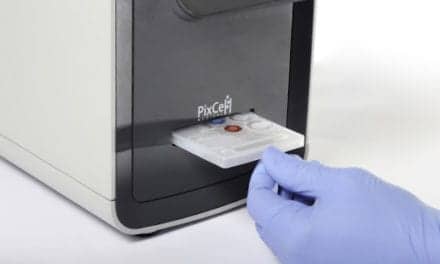Summary: Horiba expanded its line of compact hematology instruments by introducing new models that integrate Erythrocyte Sedimentation Rate (ESR) testing, enhancing diagnostic capabilities with rapid results and comprehensive disease profiling.
Takeaways:
- Integration of ESR with CBC/DIFF Testing: The new models—Yumizen H550E, H500E CT, and H500E OT—combine complete blood count and differential testing with rapid ESR results, via new technology, to offer a more complete assessment of inflammatory diseases in just 60 seconds.
- Technological Advancements and Cost Efficiency: The integration of ESR into compact analyzers using patented Correlated Rouleaux Analysis technology not only ensures accuracy aligned with the Westergren reference method but also reduces cost per test, saves laboratory space, and decreases turnaround times.
- Enhanced Connectivity and Support: The updated Yumizen models offer advanced data management capabilities through Horiba’s Yumizen P8000 middleware and Yumicare, which provides remote technical support and real-time monitoring of the instruments’ operation, enhancing efficiency and reliability in various clinical settings.
Horiba, a provider of analytical and measurement technology, expanded its compact hematology instrument range with the launch of new models with Erythrocyte Sedimentation Rate (ESR) on board.
New Compact Hematology Analyzers
The new Yumizen H550E (autoloader), H500E CT (closed tube), and Yumizen H500E OT (open tube) now offer combined testing for CBC/DIFF with ESR results from whole blood in 60 seconds, adding a comprehensive profile for inflammatory disease assessment to the instruments’ already extensive functionality, the company says.
Horiba has developed new “CoRA” (Correlated Rouleaux Analysis) technology to integrate ESR into its three new analyzers. Combining complete blood count (CBC) and 5-population white blood cell differential (DIFF) with rapid ESR, calibrated to the Westergren reference method, on one compact analyzer reduces costs per test and turnaround times, and saves laboratory space. This CoRA technology is patented by Horiba, according to the company.
Both the Yumizen H550E and H500E models have been further enhanced by offering new connectivity possibilities for data management through Horiba’s Yumizen P8000 middleware, along with Yumicare. This remote technical support tool enables secure connection to the instrument to monitor workload, reagent consumption, quality control and instrument alarms.
Further reading: Horiba Medical Launches New Fully-Automated Modular Hematology Solution
During the Yumizen H550 range evolution, other key advancements have included i-DoubleDiff technologies to enhance speed of diagnoses:
- “I” for Infectious screening: by using artificial intelligence, the analyzer can display score flags for infectious diseases such as Malaria and Dengue Fever, making it a crucial tool in both advanced and resource-limited healthcare settings.
- “DoubleDiff”: Normal leucocyte count (Lymphocyte, Monocyte, Neutrophil, Eosinophil, Basophil) + Abnormal leucocyte count (IMG, IMM, IML, LIC, ALY). Requiring just two reagents, this increased analytical capability from 27 to 37 parameters, provides deeper insights and more comprehensive results with oncology capabilities.
“Building on the global success of our previous Yumizen H550 range, we have designed the new analyzers to meet the increasing demand for affordable, robust, and highly capable hematology analyzers with connectivity that are suitable for any lab environment,” says Arnaud Pradel, president, Horiba ABX SAS. “It is one instrument with endless possibilities; and the capabilities of our Yumizen H550 range continue to grow to meet even more clinical lab needs.”
The Yumizen H550 range offers extensive applications in a variety of clinical laboratory environments and clinical settings, including critical care, oncology care, infectious disease care, blood banks, satellite laboratories, and health centers, according to Horiba.
Photo: Horiba





